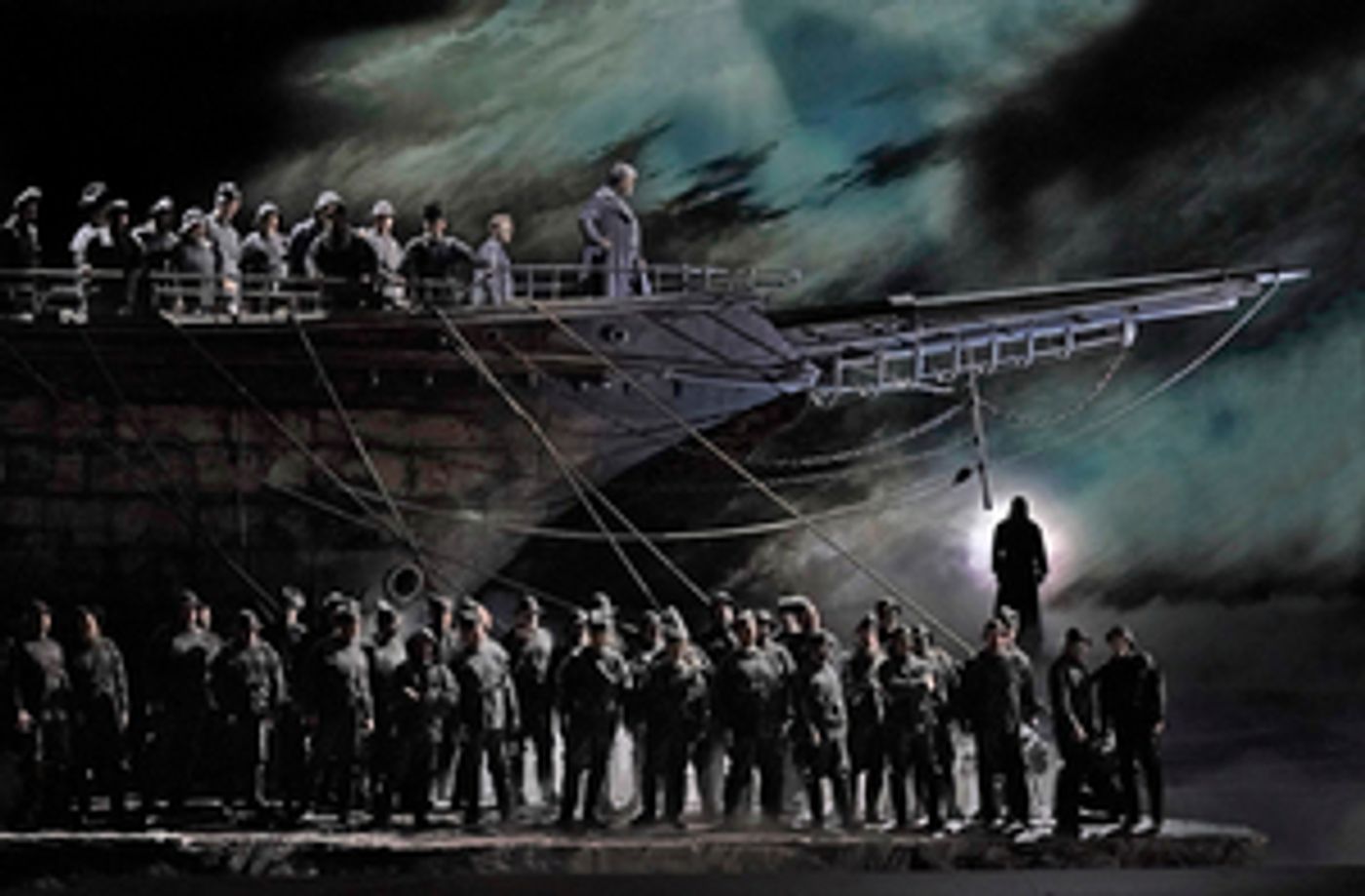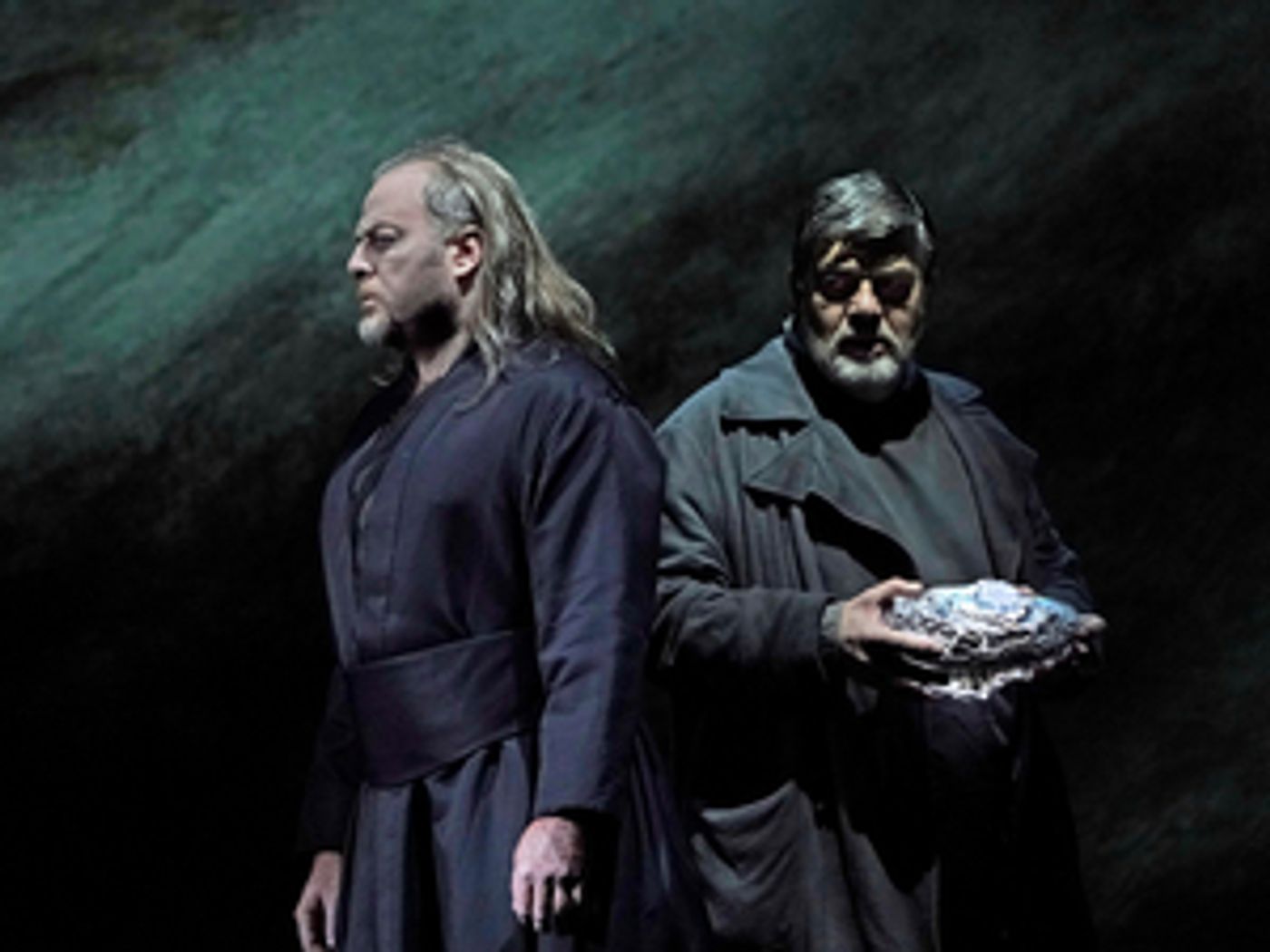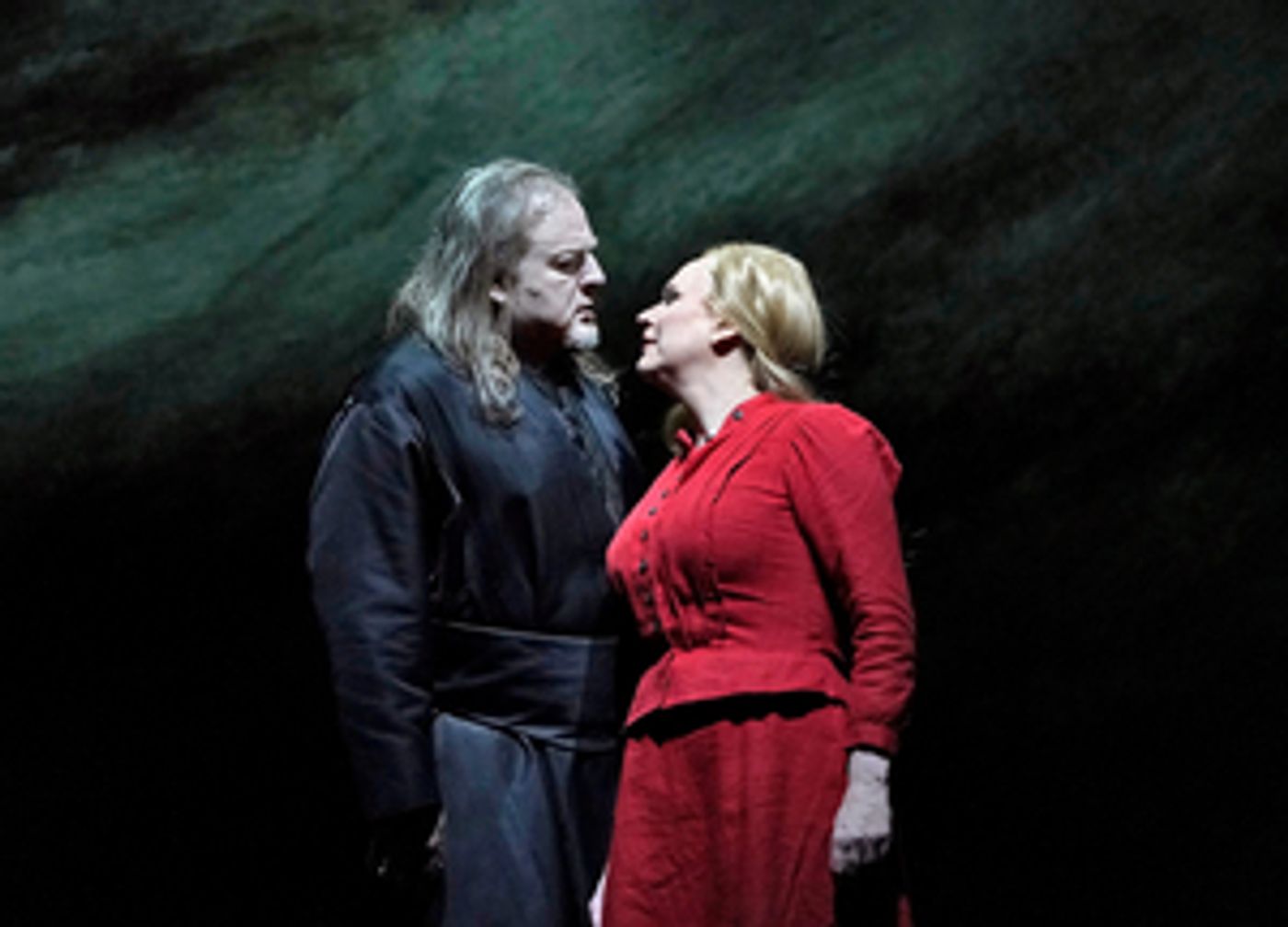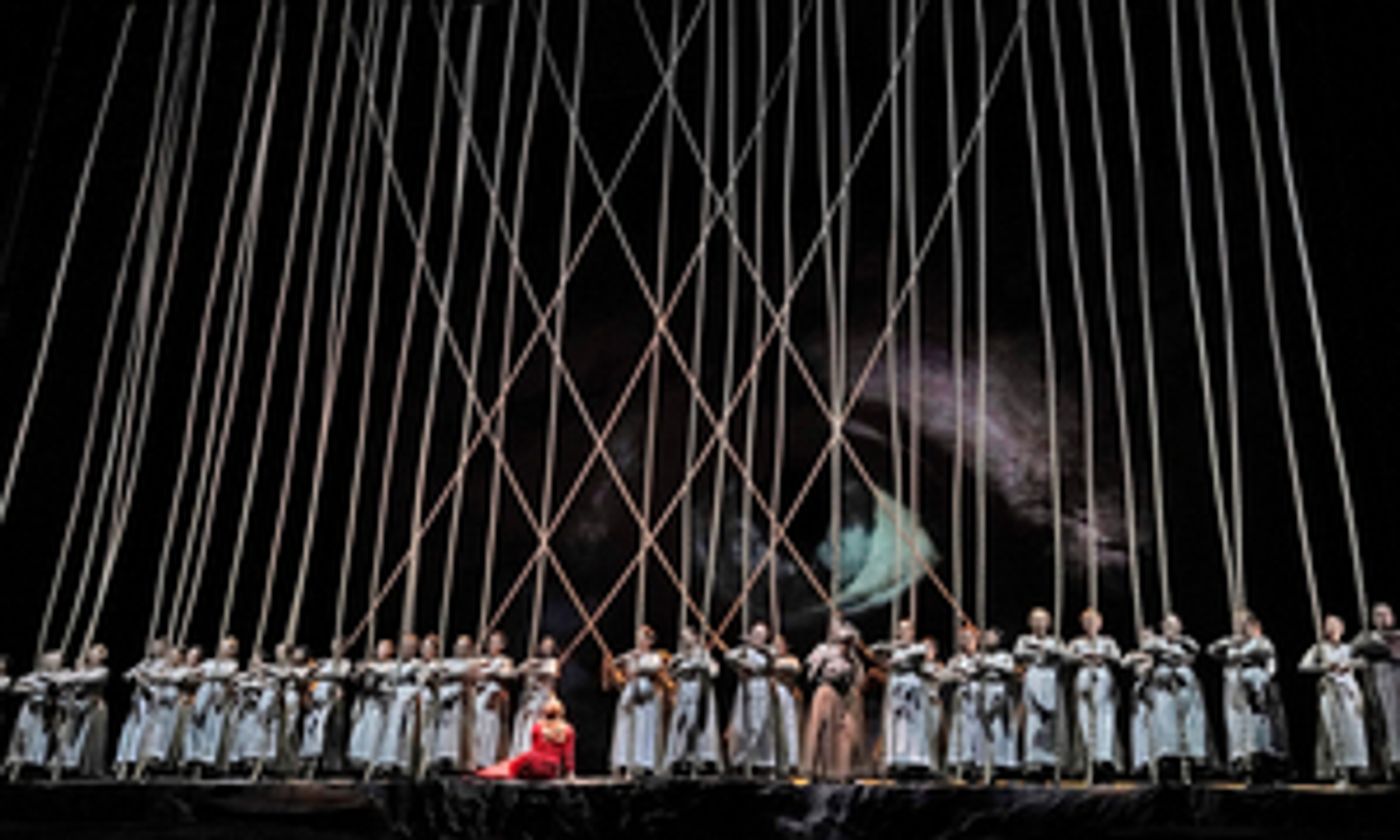Review: Girard's Disappointing New DUTCHMAN Drops Anchor at the Met

Ken Howard/Met Opera
The Met had a wonderfully conducted performance of Wagner's DER FLIENGENDE HOLLANDER--THE FLYING DUTCHMAN to us Englischsprachigen (English speakers)--with a marvelous singer in the title role.
Unfortunately, that was in 2017, when the Met's Music Director Yannick Nezet-Seguin was on the podium, with audience and musicians cheering him at curtain calls, and Michael Volle was the forceful Hollander.
This time around, when Francois Girard's new Expressionist production (Strindberg might have called it "a dream play"), designed by John Macfarlane with Peter Flaherty's projections, had its premiere the other night, things did not go so smoothly. Valery Gergiev--often a first-rate conductor--led a cast with bass-baritone Evgeny Nikitin in the title role, and marking the Met debut of Anja Kampe as one of two Sentas (one singing, one dancing) in the cast.

Ken Howard/Met Opera
Nikitin, as you might be aware, came to the rescue when the scheduled singer, Bryn Terfel, suffered an injury about a month ago. In all, he gave a reasonable performance, though his voice lacked the resonance that would have added power to his portrayal--as would have more help from both the director (who gave the company its galvanic production of PARSIFAL) and conductor, who seemed somewhat disengaged at the premiere. Still, Nikitin's rendition of "Die Frist ist um, und abermals verstrichen sind sieben Jahr" ("The time has come and seven years have again elapsed"), where he tells his sad tale of evoking the name of Satan and being forced to roam the seas, showed his dramatic power.

Ken Howard/Met Opera
Kampe gave a fine performance as Senta, even if I wished she'd come to the Met 10 years sooner, and she's the key to this production. She was a magnetic presence and it was good to hear what all the cheering has been about, since people have been singing her praises in Europe for years.
She gave a fine account of "Traft ihr das Schiff"--basically, a summary of the opera's story from her view, about the doomed man who must sail the seas until he finds a wife who will be faithful to him and only then will be able to stay on dry land. (Unfortunately, he can only come ashore and look for her once every seven years.) The aria could have been called "Lass es mich sein" ("Let it be me"), because that's what she wishes, obsessing over him--just as he obsesses about finally ending his journey.
Kampe was also extremely effective in her duet with Erik, a hunter, marvelously done by tenor Sergey Skorokhodov (in perhaps the night's overall best singing), ostensibly her fiancé but, well, you could have fooled me.

Howard/Met Opera
She didn't seem interested him at all: All that was on her mind was the portrait of the Hollander that hung in her father's house or the spinning room (that is, if there had been a spinning room in this production). The women of the Met chorus did a fine job on "Summ und brumm, du gutes Rädchen" -- "Whir and whirl, good wheel"--usually called "The Spinning Song," as they pulled on heavy ropes hanging from the ceiling, evoking the environment of the seamen (also the battling ropes at the gym).
Bass Franz-Josef Selig was Senta's father, Daland, a ship's captain who sells his daughter in marriage in return for the Hollander's treasure. He also sang the role in the last production, under Nezet-Seguin, and put in a solid performance. So did the light tenor David Portillo as the Steersman, who falls asleep at the beginning of the opera and causes the run-in with the title character. The only disappointment among the supporting players was mezzo Mihoko Fujimura, who seemed overparted as Mary, Senta's nurse.
The only reason I can figure out why there's a dancing Senta, the fine Alison Clancy, who performs Carolyn Choa's Martha-Graham-ic choreography during the overture, is that director Girard abhors a vacuum as much as nature does. I would have preferred listening to the music on its own.
Girard's most egregious mistake in the staging seemed to be with the ending. As Erik and the others plead with Senta, she supposedly throws herself into the sea crying, "Hier steh ich treu dir bis zum Tod!" ("Here I stand, faithful to you until death"), to prove to the Hollander, who has cast her aside, that she hasn't been two-timing him with Erik. But Girard's concept made it unclear exactly what happed to her--except that she disappeared.
Additional performances of DER FLIEGENDE HOLLÄNDER will take place on March 6, 10, the matinee on the 14th, 18, 21, 24 and 27. A complete schedule with casting by date and performance times is available here. The matinee on the 14th will be shown worldwide as part of the Met's Live in HD series, so opera-lovers around the globe will be able to see and hear things for themselves.
Reader Reviews
Videos

